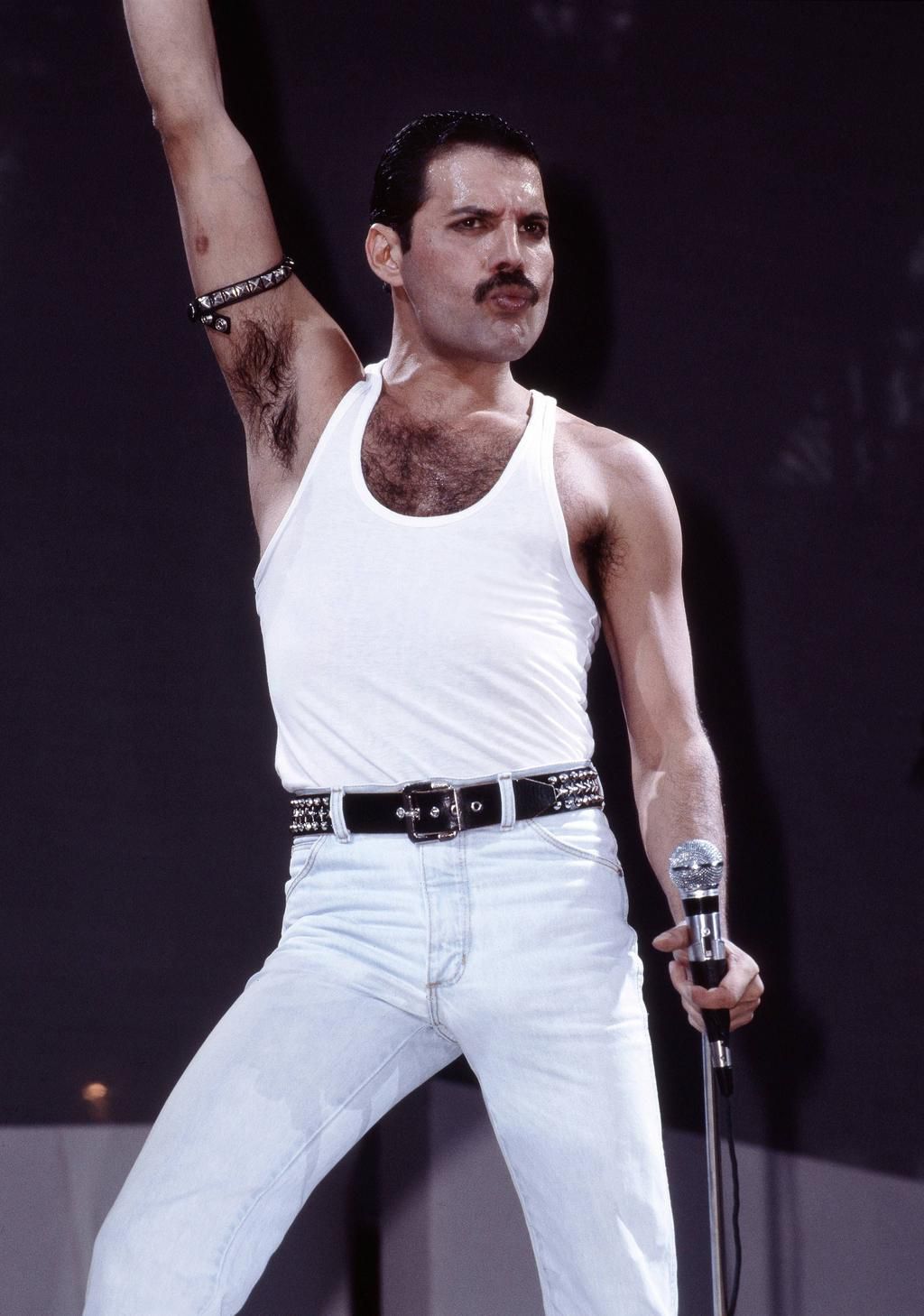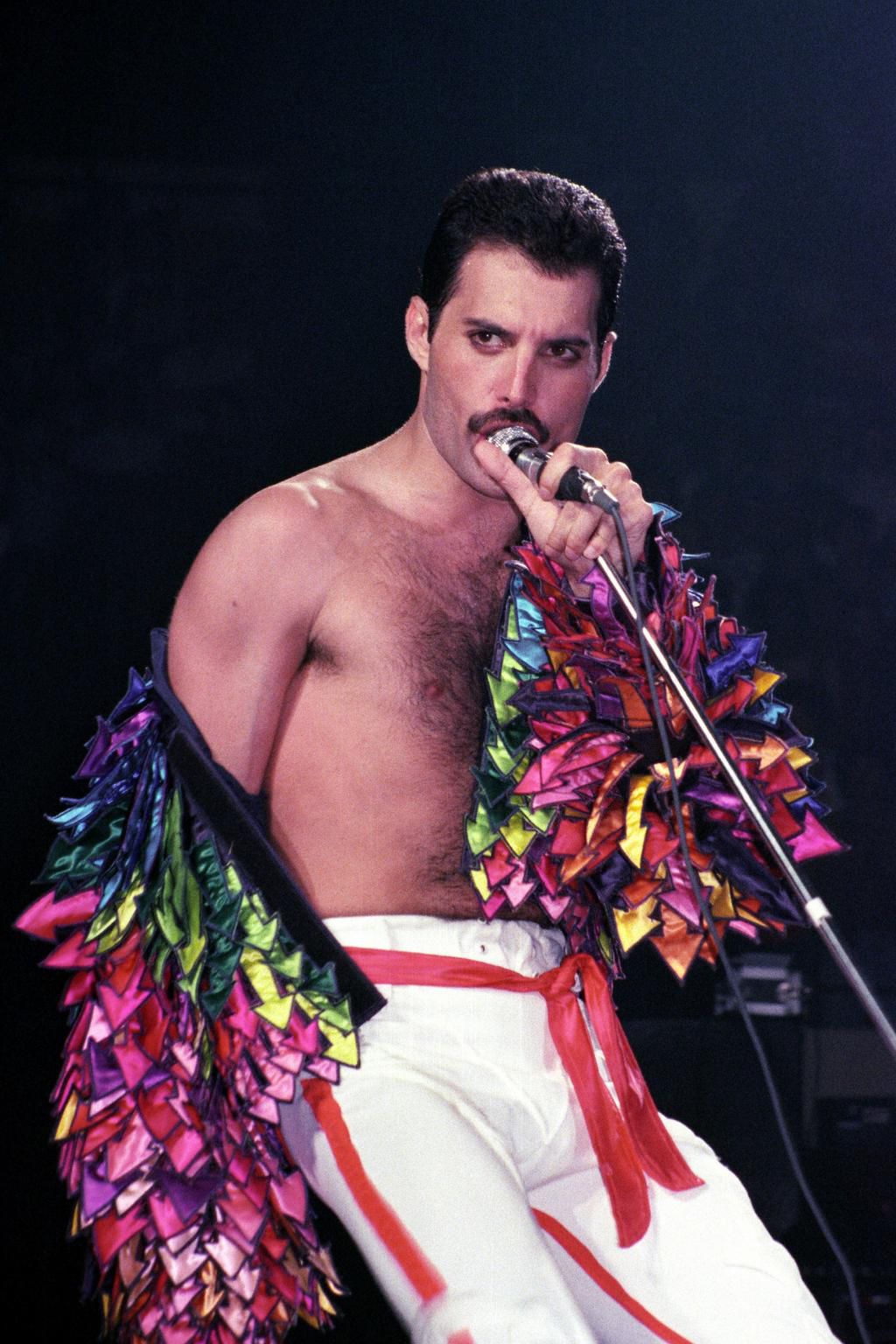How Did Freddie Mercury Die? What to Know About the Queen Singer's Last Days
)
Yet the film has come under fire, and not only for the over-the-top jumbo prosthetic teeth that star Rami Malek wears to embody Mercury. It also, to many viewers, seems to conveniently rush through his undeniably queer sexuality, which was central to the illness that killed him.
For the casual moviegoer or Queen fan, a prominent question is likely: How did Freddie Mercury die?
While it has since become well-known that Mercury had HIV/AIDS, the virtuoso singer and musician only publicly revealed his diagnosis the day before his death on November 24, 1991, at the tragically young age of 45. (He would be 72 today.) The last-minute bombshell felt eerily suited to the Brits theatrical, eccentric presence, full of both grand entrances and exits.
Mercury died due to AIDS-related complications, suffering from bronchial pneumonia while the disease had destroyed his immune system. Even for someone with Mercurys wealth and resources, this was at a time when antiretroviral drugs that could significantly extend patients' lives were still out of reach in the medical world.

Mercury had been aware of his HIV-positive diagnosis since 1987, but those around him didn't necessarily have a clue. "There was absolutely no impression from me that he could've been sick," producer Dave Richards said in a documentary.
Meanwhile, however, tabloids managed to publish rare photos of Mercury looking scarily gaunt and clearly sick as he further retracted from public life. In his last public appearance, accepting the Brit Award for Outstanding Contribution to British Music for the acclaimed Innuendo album released the year of his death, Mercury drew notice for his skeletal frame.
"When we did discover that Freddie had this terrible AIDS virus in his body, there was still a disbelief in us," Queen's guitarist Brian May said. "You think, Nah, it can't happen to our mate, it can't happen to Freddie. There's gonna be some way out of this, he's gonna be cured. And right up to the last minute, we knew, but we didn't know. We sort of refused to know, if you like."

Mercury's admitted shyness and discretion aside, HIV was-and still is-shrouded in stigma. That stigma is attached, at least in part, to the fact that HIV disproportionately affects the LGBTQ community-particularly men who have sex with men. (Anyone can get HIV. If you have questions about the disease, read up on the 8 HIV myths you need to stop believing .)
Mercury left his sexual orientation characteristically hazy even to his band members and collaborators, who also didnt know about his diagnosis until the late stage. He was, however, known by those close to him to have had male and female sexual partners over the years. (Today, hes widely considered to have been bisexual.)

Its hard to imagine that Mercury didnt harbor reservations about being out about his sexual life in an era when it could have significantly damaged his image as the leader of one of the biggest rock bands in the world. Away from the limelight, though, Mercury had at least two close romantic relationships that came to light. He was a onetime fianc to Mary Austin (played by Lucy Boynton in the Queen biopic), who remained a lifelong confidant and friend until his last breath, and who received the lion's share of his assets after he died, including his lavish London home and future recording royalties. (She has remained a sort of spokesperson, however guarded, for her former paramour.) Mercury also kept up a romance with Jim Hutton, his hairdresser, from 1985 until his death.
While Bohemian Rhapsody doesn't ignore this history, the band-approved film also sanitizes Mercury's involvement in a gay subculture as well as his booze- and drug-fueled lifestyle. It places great emphasis on his relationship with Austin, while merely nodding to his male partners. Even after the two-hour-plus runtime, you'd be forgiven for feeling a bit out of the loop. That may help explain why Sacha Baron Cohen, initially tied to the project, dropped out amid misgivings that it wouldn't get into the "nitty gritty" of Mercury's life.
Theres no doubt that Mercury had much, much more to give the world when he died, especially given the surprisingly robust output of Queen through 1991. "We were a very close-knit group like a family, and we would work in the studio until Freddie got retired," May said of that latter period.
But while there was skepticism about his hiding his sexuality and diagnosis for so long from activists, its also clear in retrospect that Mercury went out on his terms. In one interview, he defiantly stated of getting older, "I really don't care. I've lived a full life, and if I'm dead tomorrow, I don't give a damn."

)
)
)
![2026 Golden Globes: Teyana Taylor, Timothee Chalamet and the biggest winners [FULL LIST]](https://sportal365images.com/process/smp-images-production/pulse.ng/12012026/002666db-358d-4deb-9510-84cdb274ffda.png?operations=autocrop(112:112))
)
)